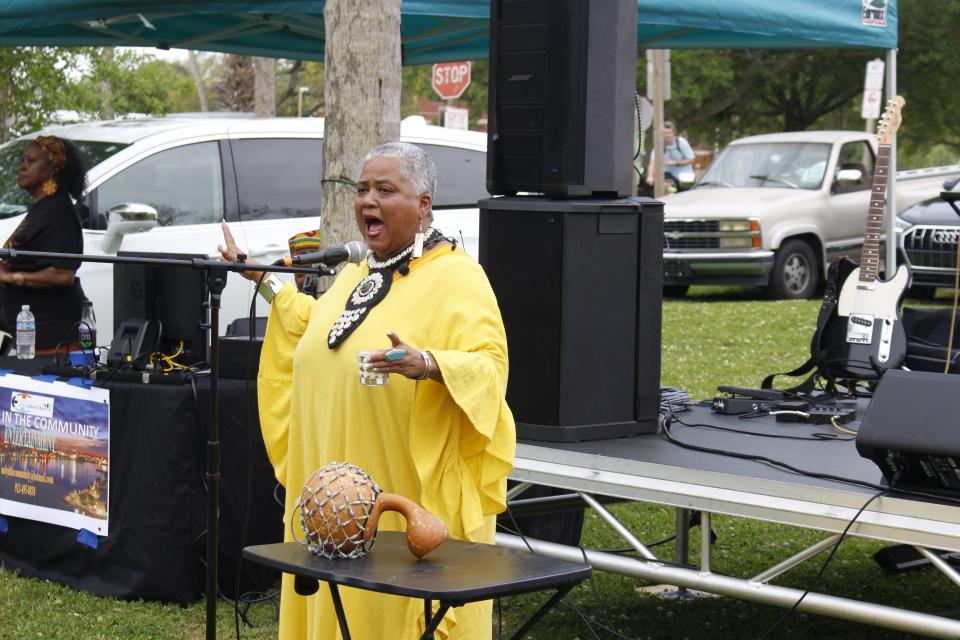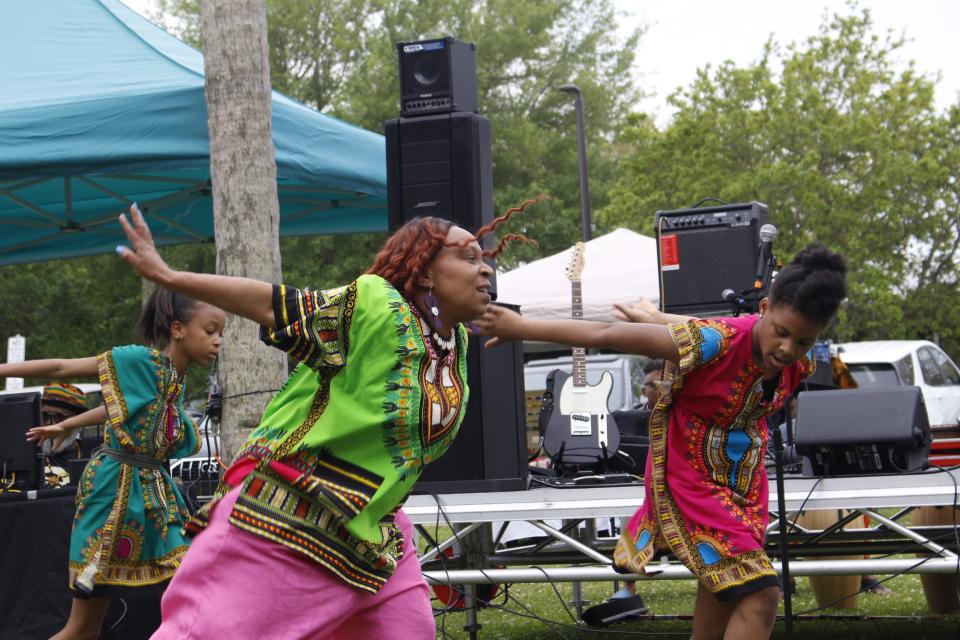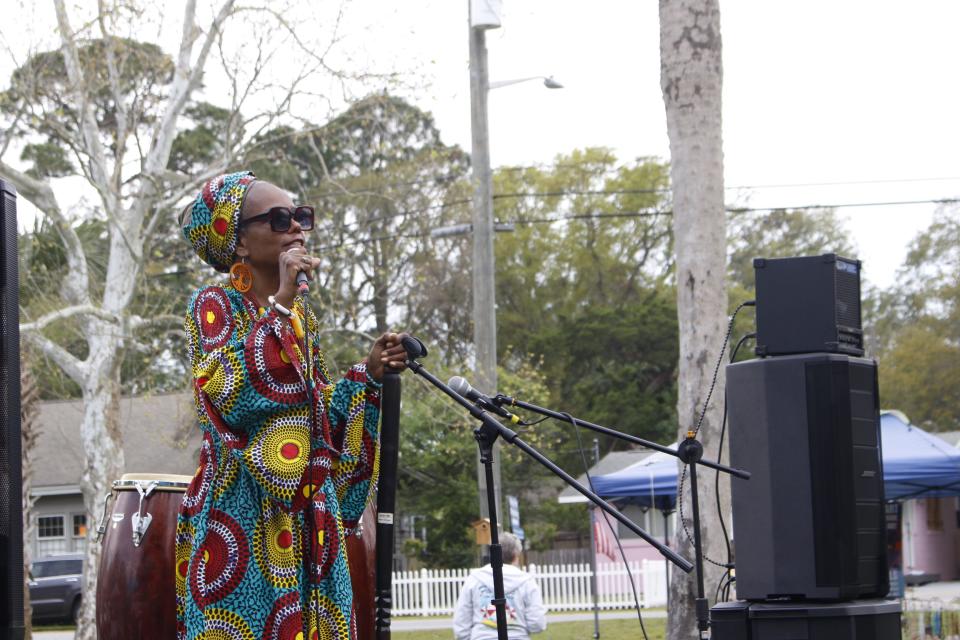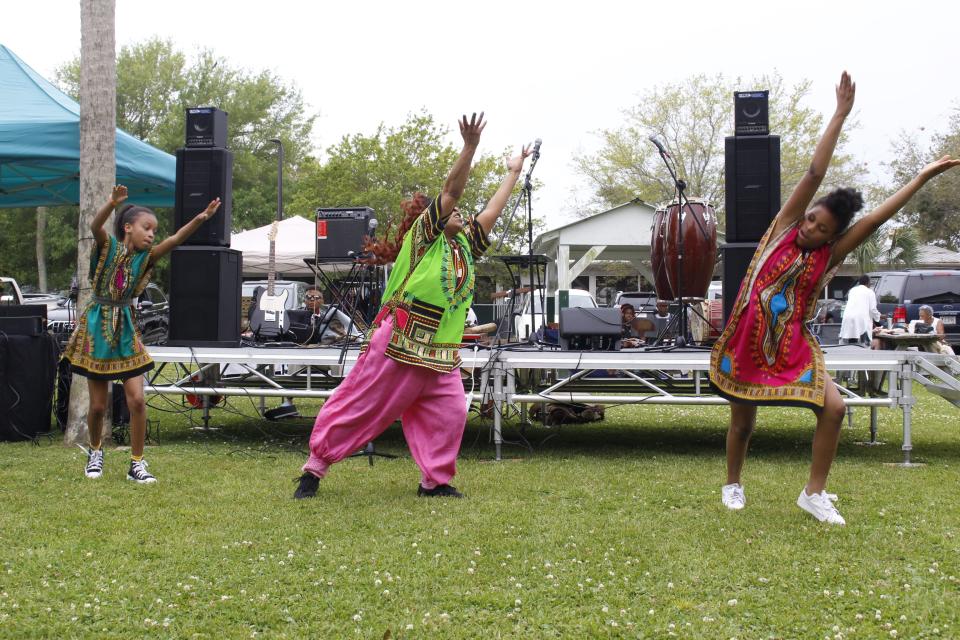Lazaretto Day returns to Tybee for second year for day of remembrance of enslaved past
For the second year in a row, Tybeeans and locals celebrated Lazaretto Day on Saturday, a day of remembrance of the history of enslaved Africans brought to this part of Georgia’s coast.
The celebrations, organized by Tybee MLK Human Rights Organization, also commemorated African heritage and this region’s Gullah Geechee, descendants of the enslaved who created their own unique culture that “evolved from the conditions of slavery that characterized their lives.” Through colorful song, dance and poetry, people observed both the dark history of American slavery and the beauty of the culture that endured throughout the centuries.
More:'We really can be all one quilt': A celebration of Lazaretto Day on Tybee Island
Between the 16th and 19th centuries, more than 12 million Africans were captured from their homes and forced into slavery as part of the transatlantic slave trade.
After slavery was legalized in the colony of Georgia in 1750, Savannah became one of the most active slave trading ports in the U.S. Tybee Island played a part in the largest forced migration in human history as well.
“In the late 1760s, the lucrative slave trade had grown to the point that a physical building was required on Tybee Island to facilitate the quarantine process that was required before slave ships could proceed to the Port of Savannah,” said James Hilleary, founder of the grassroots Lazaretto Coalition.
More:Push continues to document, memorialize enslaved Africans buried near Lazaretto Creek
Hilleary referred to the quarantine station, also known as a Lazaretto, off of Lazaretto Creek. Between 1795 and 1803, about 667 enslaved Africans survived the Middle Passage voyage and landed on Tybee Island’s shores. Those who were healthy were taken to Savannah to be sold. Those who died were buried in unmarked graves along the Lazaretto Creek.
Lazaretto Day is a tribute to those people who were taken from their homeland. This year, the festivities took place at Tybee’s Memorial Park. About 100 people attended including city officials, the mayor and community leaders.

Celebrations kicked off with a libation or tampiko performed by Lillian Grant Baptiste, a local storyteller.
“We remember those who were forced in the belly of a slave ship, those who were Africans forced to be enslaved … we remember those ancestors whose bones rest on the floor of the Atlantic,” said Baptiste before she poured a chalice of water into the grass.
The exact location of those unmarked graves along Lazaretto Creek remains unknown, but Tybee MLK said they are working towards uncovering this bit of history. One method, said TybeeMLK founder Julia Pearce, is employing modern technology such as ground-penetrating radar to identify the buried remains.
“We're asking the federal, state and local government to find the actual quarantine cemetery that is a part of the Lazaretto,” said Pearce.
More:Tybee organizers fear Lazaretto Bridge renovations could endanger unmarked burial site
The mission to identify those remains grew more urgent as the Georgia Department of Transportation (GDOT) started preliminary work to replace the nearby Lazaretto Creek Bridge earlier this year. GDOT plans do not indicate if the possible archaeological landmark – which also sits on privately-owned land – will be affected by the construction. But organizers are nevertheless concerned, and also see this as an opportunity to enlist state and federal help to rectify this part of history.

Throughout the Saturday afternoon, Randy Williams and Rosalyn Rouse serenaded the crowd. Amir Jamal Touré, an expert in Gullah/Geechee life, gave a rousing storytelling performance. Sankofa Dancers performed a rhythmic choreographed routine. Patrice Jackson, an artist and singer, closed out the performances with a reflective and interactive session of song and poetry.
Tybee MLK also awarded their first Lazaretto Legacy Award to Wanda S. Lloyd, a former journalist, who authored the book “Coming Full Circle: From Jim Crow to Journalism.” In her acceptance speech, Lloyd recounted growing up in Savannah and how her mother would tell her, “don’t go to Tybee, it’s dangerous out there.”
Up until 1963, Tybee Island beaches were for whites only.
“After my mother passed away, the day after her funeral … that was the first day ever in 1988 that I set foot on Tybee Island,” recounted Lloyd.
Ongoing efforts

Tybee Island, being part of one of the earliest American colonies, bears the most brutal aspects of American history and that should be acknowledged, said Pearce.
“There isn’t a part of American history that slavery doesn’t touch so we should be able to have a conversation about it,” she said.
And efforts to tell that history are ongoing.
Last October, the Tybee Island Historical Society dedicated an official marker in front of the Tybee Island Lighthouse to the city’s role in the Middle Passage as one of the 53 U.S. coastal ports that received enslaved Africans.
The Lazaretto Coalition, a grassroots offshoot of Tybee MLK, wants to erect an official monument dedicated to the Lazaretto’s history, in addition to the historical marker that currently stands.
'I share this cry with you' Memorial marks Tybee's role in the Middle Passage slave trade
Tybee MLK are also continuing work on other projects that commemorate Black history on the island, from the transatlantic slave trade, the Jim Crow Era, the civil rights era and up to the modern day.
The organization recently completed the “Tybee Island Black History Trail” a virtual tour of the island’s Black history and life. The group mapped out specific landmarks that document, not only stories of Jim Crow and segregation, but also places in which the Black community thrived.

Pearce said the group hopes to erect signage in the future to direct visitors. At the moment, those who want to learn more about this history can view the map and corresponding stories online.
“Sometimes I'll be in places like Savannah, and people will find out I live on Tybee and they'll say, ‘I didn't think any Black people lived on Tybee,’” said Pearce, “And that’s not true, there have always been Black people on Tybee, since the beginning. And this trail helps solidify that.”
Nancy Guan is a general assignment reporter covering Chatham County municipalities. Reach her at nguan@gannett.com or on Twitter @nancyguann.
This article originally appeared on Savannah Morning News: Lazaretto Day commemorates African history, heritage on Tybee Island

